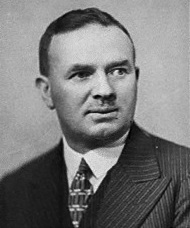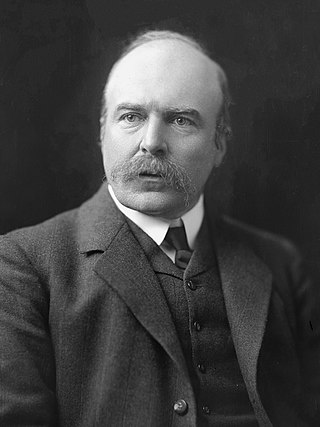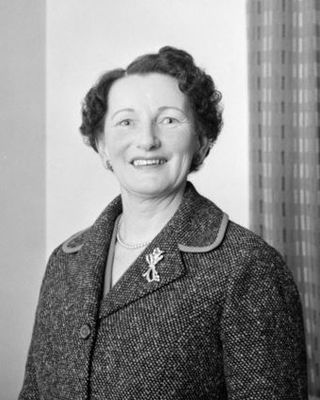
The 1975 New Zealand general election was held on 29 November to elect MPs to the 38th session of the New Zealand Parliament. It was the first general election in New Zealand where 18- to 20-year-olds and all permanent residents of New Zealand were eligible to vote, although only citizens were able to be elected.

Brigadier James Hargest, was an officer of the New Zealand Military Forces, serving in both the First and Second World Wars. He was a Member of New Zealand's Parliament from 1931 to 1944, representing firstly the Invercargill and then the Awarua electorates.
The following lists events that happened during 1901 in New Zealand.
The following lists events that happened during 1909 in New Zealand.

Josiah Alfred Hanan, known to his colleagues as Joe Hanan, was a New Zealand politician, cabinet minister, and legislative councillor. He also served as Mayor of Invercargill, and as Chancellor of the University of New Zealand.

Invercargill is an electorate of the New Zealand Parliament that has existed since 1866. Since the 2020 election, the electorate's representative is Penny Simmonds of the National Party.
Norman Philip Hastings Jones was a New Zealand National Party politician, who represented the Invercargill electorate in Parliament.

Dunedin North is a former New Zealand parliamentary electorate, which returned one Member of Parliament (MP) to the New Zealand House of Representatives. It was established for the 1905 election and has existed since. It was last held by David Clark of the New Zealand Labour Party, who replaced the long-standing representative Pete Hodgson. It was considered a safe Labour seat, with Labour holding the seat for all but one term (1975–1978) since 1928. In the 2020 electoral boundary review, Otago Peninsula was added to the area to address a population quota shortfall; with this change the electorate was succeeded by the Dunedin electorate in the 2020 election.

John Baldwin Munro, better known as J. B. Munro, was a New Zealand politician of the Labour Party. He was also a notable disability advocate.

Harry Dodgshun Bedford was a New Zealand university academic and Member of Parliament for the City of Dunedin.

Robert McNab was a New Zealand lawyer, farmer, historian, and politician of the Liberal Party. He was Minister of Justice for the 18 months before his death.

Trevor James Young was a New Zealand politician of the Labour Party.
The New Zealand Liberal Party was a classical-liberal party that was formed to stand candidates in the 1963 general election. It was defunct after the 1966 general election, which it did not stand candidates for.
Dunedin Central was a parliamentary electorate in the city of Dunedin in Otago, New Zealand from 1881 to 1890 and 1905 to 1984.

John Munro was a 19th-century Member of Parliament from the West Coast, New Zealand.

The 1945 Dunedin North by-election was a by-election held during the 27th New Zealand Parliament in the Dunedin electorate of Dunedin North. The by-election occurred following the death of MP James W. Munro and was won by Robert Walls.

The 1953 North Dunedin by-election was a by-election held during the 30th New Zealand Parliament in the Dunedin electorate of North Dunedin. The by-election occurred following the death of MP Robert Walls and was won by Ethel McMillan.
The 1976 New Year Honours in New Zealand were appointments by Elizabeth II on the advice of the New Zealand government to various orders and honours to reward and highlight good works by New Zealanders. The awards celebrated the passing of 1975 and the beginning of 1976, and were announced on 1 January 1976.
The 1978 Queen's Birthday Honours in New Zealand, celebrating the official birthday of Elizabeth II, were appointments made by the Queen in her right as Queen of New Zealand, on the advice of the New Zealand government, to various orders and honours to reward and highlight good works by New Zealanders. They were announced on 3 June 1978.
The 1969 Special Honours in New Zealand was a Special Honours List dated 14 November 1969, in which 29 people were awarded the Polar Medal, for distinguished services in scientific research and exploration as members of annual New Zealand expeditions to Antarctica.












